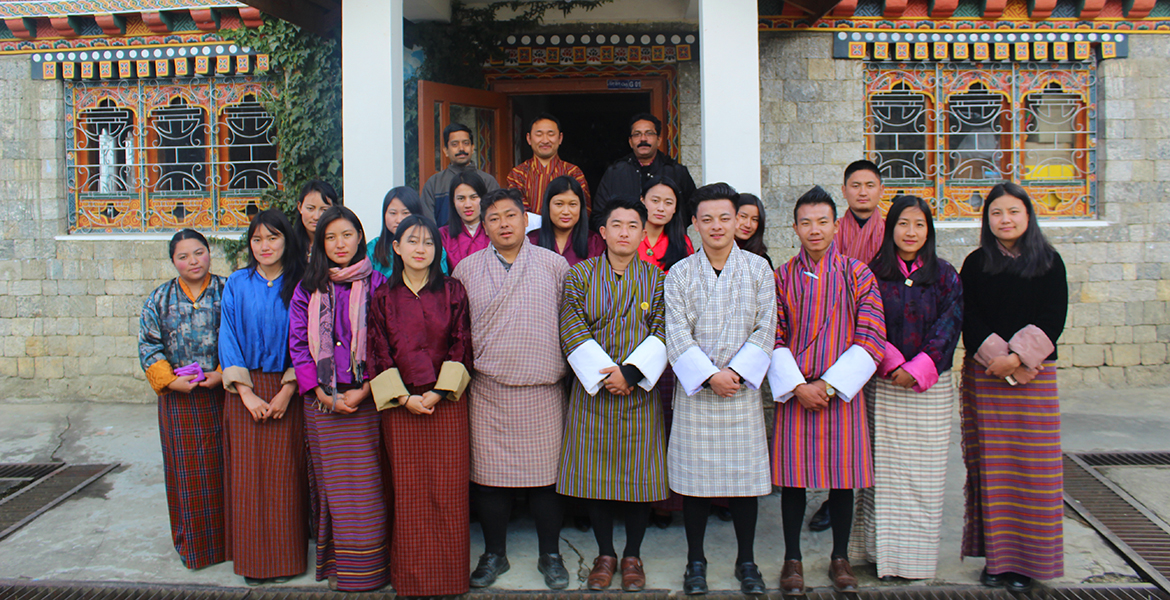



This project is initiated in funding collaboration with the Federal Ministry for Economic Cooperation and Development (BMZ), Germany and German Leprosy and TB Relief Association (DAHW), Germany
Project Title: “Social Inclusive Development for People with Disabilities in Bhutan.”
Project Goal: Contribution to the development of an equal and inclusive society in Chukha, Dagana, Punakha, Sarpang and Trashigang.
Project period: 37 months (1st of December, 2018 – 31st of December 2021.
Purpose: “Capacitating and strengthening the role of community actors for building equal and inclusive society’’
The major challenges faced by Persons and children with disabilities in Bhutan are; Low resource capacity (Institutional and human resource); access to education and health services and; social stigma and discrimination. As a result, only a few of them go to schools or hospitals, while many are left to their fate in their villages. The health services for persons with disabilities are hard to access and no means of transportation are available. The lack of awareness and acceptance of children with disabilities in the society is exacerbated by the lack of awareness on the services provided by the government and non-governmental organizations/ civil society organizations which has severe impact on the welfare of the children with disabilities. Moreover, social beliefs tend to neglect from the medical treatment which also causes disability.
Therefore, the project, “Social Inclusive Development for People with Disabilities in Bhutan” will be implemented in 5 Dzongkhags in Bhutan to identify the situation and number of people with disabilities specially women & children which will promote social inclusion at all levels namely Health, Education, Livelihood and Empowerment.
To achieve the targets and equally ensuring sustainability of the activities, the project is collaborating and involving all relevant government institutions and non-government organizations at the Dzongkhag and national level. In addition, the project also will capacitate knowledge on disability to Grass-root community health workers; Early Childhood Care and Development center facilitators; Teachers; Parents /care givers on self-care awareness; Local Government leaders; and Religious leaders.
At the end of the project, it is expected to have different attitude in the society towards people with disabilities that would make them easier to participate and have a platform to become independent.
Activities:
| 1. | Training for 168 ECCD Facilitators (around 34/district) |
| 2. | Training for 74 Basic Health Unit Staff (around 15/district) |
| 3. | Training for 150 School Teachers and special educational needs coordinators (SEN) (30/district) |
| 4. | Adapting 5 Referral Units (RUs) in existing ECCD centers (1 per district) |
| 5. | Vocational training for 50 Women with Disabilities on tailoring and counselling sessions on parental care, livelihood, self-employment, and WASH (10/district) |
| 6. | Provision of Tailoring machines/ income generation/business to 25 nos. – disabled friendly (5nos./district) |
| 7. | Sensitization meeting for 100 religious leaders/monastery heads (20/district) |
| 8. | Training on self-care, self-esteem for 1500 parents & care givers (300/district in 2019 & 200/district in 2020) |
| 9. | Pilot study and formation of 5 SHGs (1 per district with 150 members) |
| 10. | Camps for 250 early disability identification & prevention at district level (50 beneficiaries per district per year) |
| 11. | Life skill development orientation for 25 CWDs for social inclusion (5 children per year per district) |
| 12. | Supply of 200 Aids & appliances for people with disability (around 13 aids and appliances per district per year) |
| 13. | Talent week for disabled – community mobilisation / organize sports / cultural competitions |
| 14. | Observe World Disability Day/ Autism, Down Syndrome, CP – involve the students & communities |